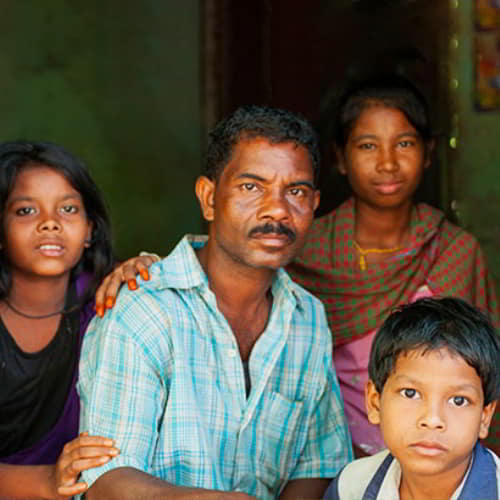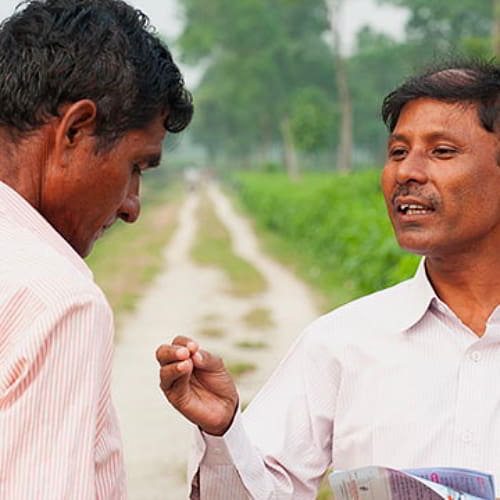What Is the Poverty Cycle?
The question, “What is the poverty cycle, or cycle of poverty?” is one that must be answered to address and end poverty across the globe. Put simply, the term refers to the trend where the vicious effects of poverty and deprivation pass from one generation to the next, with no seeming way out.[1]
Someone born into poverty has fewer opportunities than their wealthier peers. They must focus on survival above all, leaving little room for anything else. One illness can wipe out a family’s savings, but the unclean water sources and lack of protection available to them invite sickness. Walking to retrieve water can be time-consuming yet must be a daily priority, and many children must work alongside their parents for the family to afford food. Thus, school is often a far-off dream. Having had few opportunities to acquire skills, the kids grow up to repeat the cycle of poverty with their own children.
This story was all too familiar for Nalah. His father worked in the tea fields, trying to earn a livelihood to support his family. It wasn’t long before Nalah had to forsake his education to join his father to earn enough money. Tea gardens regularly pay their laborers below minimum wage, making it extremely difficult for them to provide the basics—clothes, school supplies and even food—for their families. Despite this rough childhood, Nalah grew up and started his own family. With three daughters and one son, the pressure to provide was immense, and Nalah could not meet all their needs as he desired, causing him to sink into a depression. Like many men from the tea gardens, Nalah turned to alcohol and gambling to ease the depression, and his family suffered even more because of this.
Then, just when Nalah’s life was spiraling downward, a Christian shared the love and peace of God with him. Wanting to live a life with purpose, Nalah accepted Christ. Soon, he met a GFA pastor, and he and his family began attending church. The pastor noticed Nalah’s impoverished condition and how it was impossible for him to escape it on his own, so the pastor coordinated with church leaders to do something about it. Through God’s faithfulness and the generous giving of supporters around the world, Nalah received a sewing machine. Now, Nalah could make and sell clothes on the side while continuing to work in the fields. The extra income meant he could provide for his family’s needs; there was hope for the future.[2]
Click here, to read more about this article.
Click here, to read more blogs in Gospel for Asia.Net


Comments
Post a Comment